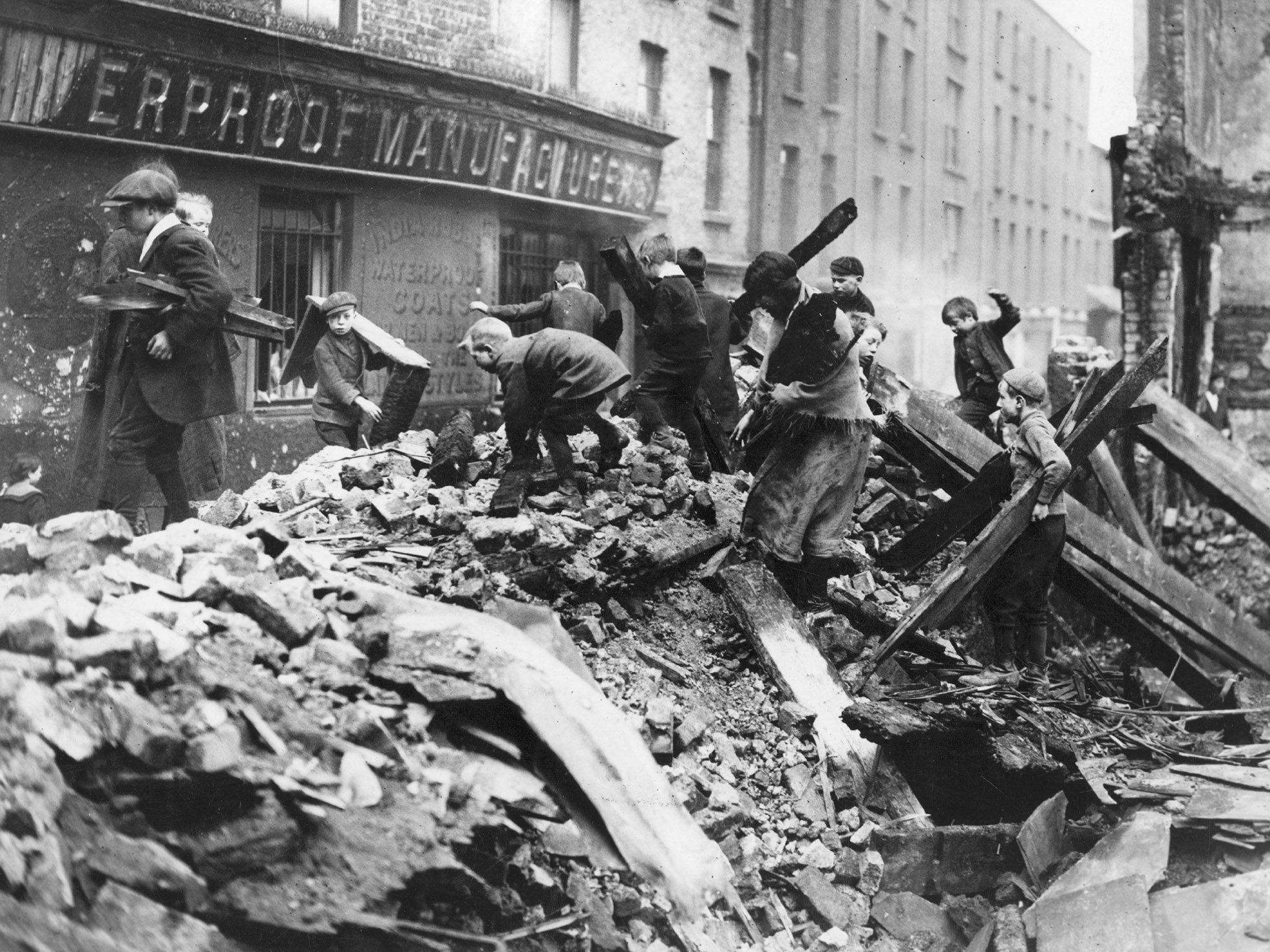I won't be remembering the Easter Rising. The legacy of Ireland's heroes is profoundly damaging
As an Irish school pupil I was taught to worship the memory of Padraig Pearse. I couldn't see through the myth until I left my native country - but now I know how dangerous it still is


Your support helps us to tell the story
From reproductive rights to climate change to Big Tech, The Independent is on the ground when the story is developing. Whether it's investigating the financials of Elon Musk's pro-Trump PAC or producing our latest documentary, 'The A Word', which shines a light on the American women fighting for reproductive rights, we know how important it is to parse out the facts from the messaging.
At such a critical moment in US history, we need reporters on the ground. Your donation allows us to keep sending journalists to speak to both sides of the story.
The Independent is trusted by Americans across the entire political spectrum. And unlike many other quality news outlets, we choose not to lock Americans out of our reporting and analysis with paywalls. We believe quality journalism should be available to everyone, paid for by those who can afford it.
Your support makes all the difference.“In every generation the Irish people have asserted their right to national freedom and sovereignty”
The Proclamation of the Irish Republic, 1916
At my primary school, two portraits hung on the wall. One was of Padraig Pearse. The other was of Jesus Christ. Pearse was executed by the British after his involvement in the Easter Rising of 1916. Unlike Eamon de Valera - who dodged the firing squad because he held an American passport -Pearse never had the opportunity to mangle his legacy. De Valera sold the country out to the Catholic Church when he wrested power. He allowed it to run Ireland’s schools, hospitals and, in effect, government – and there has been criticism of the result. Yet Pearse, himself a devout and strident Catholic, lives on in the Irish psyche like a romantic and militant version of Kurt Cobain. People with God and youth on their side never lose.
It is a century since the rising. For 24 years I have heard, read and listened to espousals of its importance to my life, and to my freedom. And I believed it. I described myself as a “Republican pacifist”. I identified as Catholic. Not one that went to mass, mind, but I prayed silently at home.
And then, when I left Ireland I realised I was fundamentally wrong. These Irish heroes and their legacies were damaging.
Ian Paisley, David Trimble and other died-in-the-wool Loyalists aside, the first time I heard someone speak in a manner that did not deify the leaders of early 20th Century Irish Republicanism was as an 18-year-old history undergraduate. We were studying a text on Pearse by Ruth Dudley-Edwards, a revisionist historian and no stranger to Republican ire. Our lecturer’s intention wasn’t to offer Dudley-Edwards’s work as undisputed fact, but to show us that there was another way of thinking. If these men and women could be questioned, the system could be questioned.
For so long the ruling parties had fallen back on the War of Independence and the legacy of British colonialism, but if you took away their heroes you took away their power.
I’ve argued with friends and family about the Rising commemorations. Why shouldn’t we honour them? They were brave; they stood face to face with the greatest known empire in the world and philosophically won. This argument on its own is hard to disagree with, but it fails to acknowledge the campaign of isolationism and institutionalism those leaders led once in power.
The initial proclamation bestowed equal rights on Irish people. But these rights were never truly borne out.
Women suffered — and continue to — from the scurrilous Rome-sanctioned patriarchy that was imposed on them post-independence. For decades they spent their lives half-crippled through pregnancy, faced the ignominy of boarding abortion boats and endured the dark horror of the laundries; sent to them— due to familial shame — to have “illegitimate” children, who were then callously snatched by those sent to do the lord’s bidding. Approximately 12 women still travel to Britain every day from Ireland for an abortion. This was an Ireland the rebel leaders called for Irish women to pledge their allegiance to in the Proclamation of the Irish Republic.
The proclamation itself is a piece of literature lauded for its progressive stance on gender equality. However, no woman served as a cabinet minister in an internationally-recognised government of Ireland until 1979 60 years after Constance Markievicz became a cabinet minister in the revolutionary government. De Valera and his Catholic cabal of revolutionaries-turned-politicians allowed misogyny and oppression to thrive, and we celebrate them.
As is often the case with revolutions, self-determination was the noble pursuit of ignoble fanatics. Had the militants been refused a place in later governments, the past 100 years would have undoubtedly taken on a radically different hue.
Despite the heavy price, a large proportion of the Irish population is still content to comfort itself in the blanket of the rebel creed. Crowds come and go, as they will this Easter weekend as the commemoration celebrations get underway, but Ireland remains the same.
Join our commenting forum
Join thought-provoking conversations, follow other Independent readers and see their replies
Comments